Events

Artificial intelligence, artificial security: Digital technologies and authoritarian politics
Join Statewatch and the Collaborative Research Center for Resilience to discuss the nexus between state power, digital technologies and security politics in Europe and the USA.
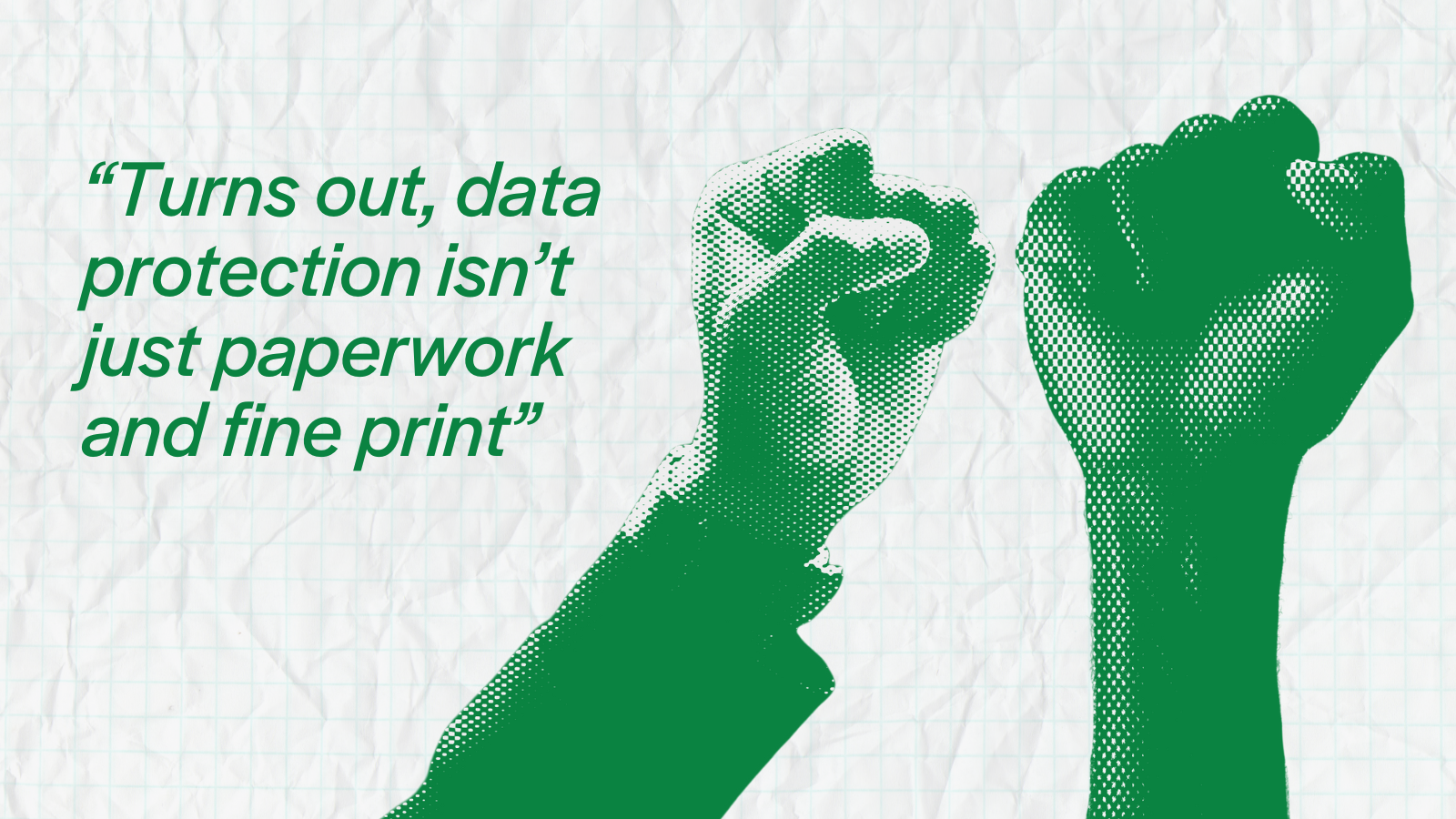
Data protection in immigration and asylum: Rights and opportunities for redress
Do you work with people in immigration or asylum proceedings? Do they face problems of secrecy and lack of access to information about their case? Would you like to know more about how data protection law can be used in migration and asylum cases? Join us for an online workshop on 8 May.

Film screening: Ultraviolence
Ultraviolence documents the struggles for justice by families of people killed by police in the UK. The screening is in support of the forthcoming People's Tribunal on Police Killings (PTPK). A speaker from the PTPK will be in attendance for a discussion session after the screening.
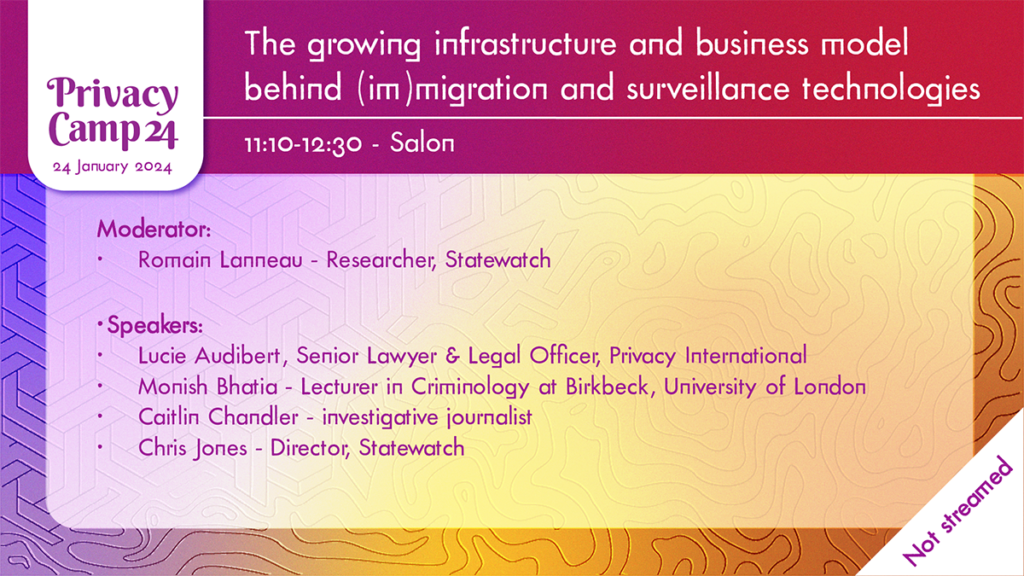
The growing infrastructure and business model behind (im)migration and surveillance technologies
Panel co-hosted by Statewatch and Privacy International at Privacy Camp 2024 in Brussels, Belgium.
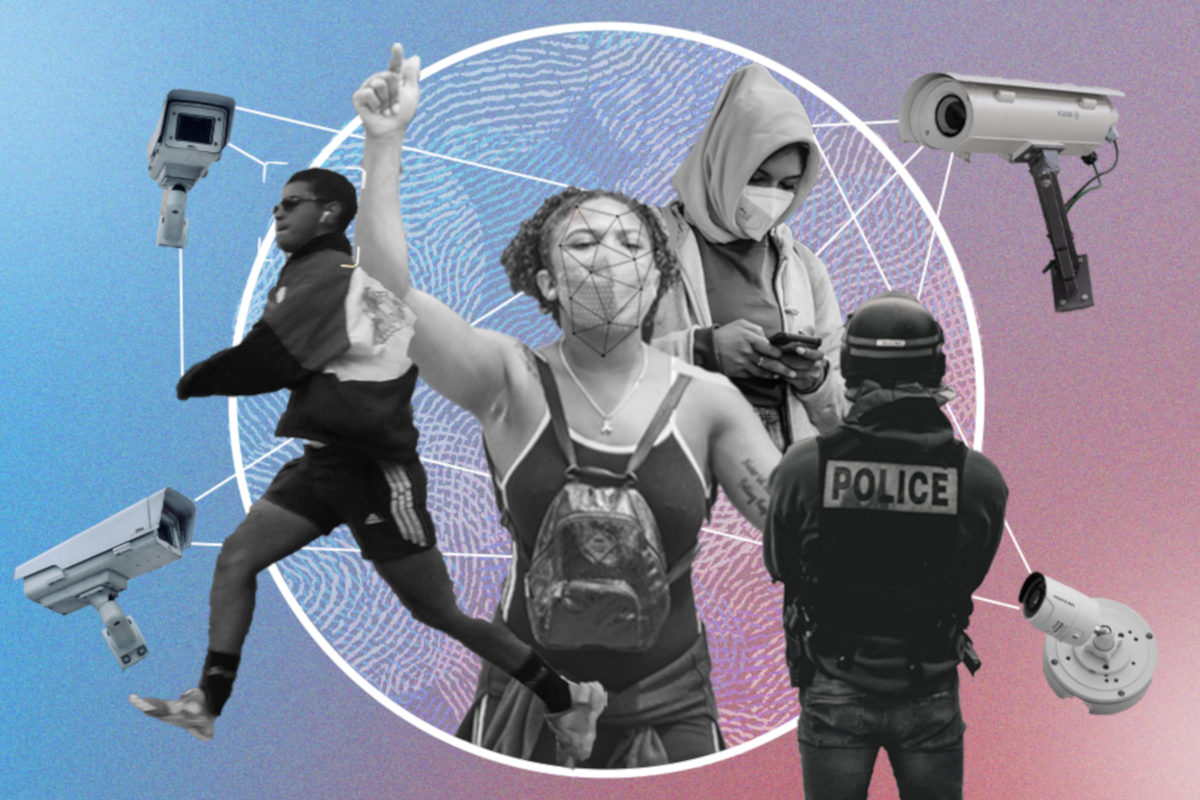
Webinar: Activists and NGOs under watch! Are you in Europol’s databases?
On 7 November, digital rights experts from EDRi and Statewatch will explore how civil society, activists and social movements have been increasingly criminalised and surveilled in Europe, and will introduce attendees to a new tool that will people request their data that is held by Europol. Access requests are an important tool in countering the abusive data collection practices by European police.

Surveillance technology and artificial intelligence: what impact for people on the move?
A webinar presenting a new report from Statewatch and EuroMed Rights (Europe's techno-borders); a new EuroMed Rights report (Artificial intelligence: the new frontier of the EU's border externalisation strategy); and an update on negotiations on the EU's Artificial Intelligence Act.
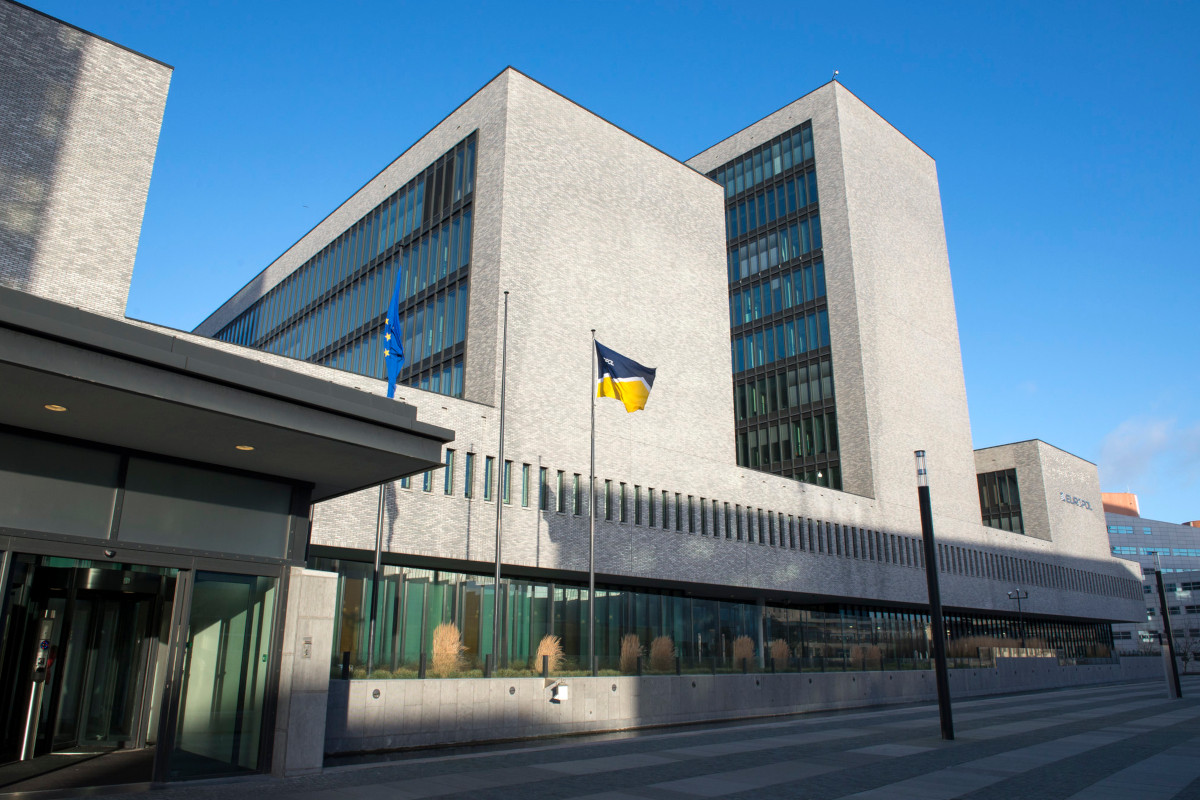
Workshop: Policing the crisis, policing as crisis: the problem(s) with Europol
We are hosting a workshop at Privacy Camp 2023 in Brussels.
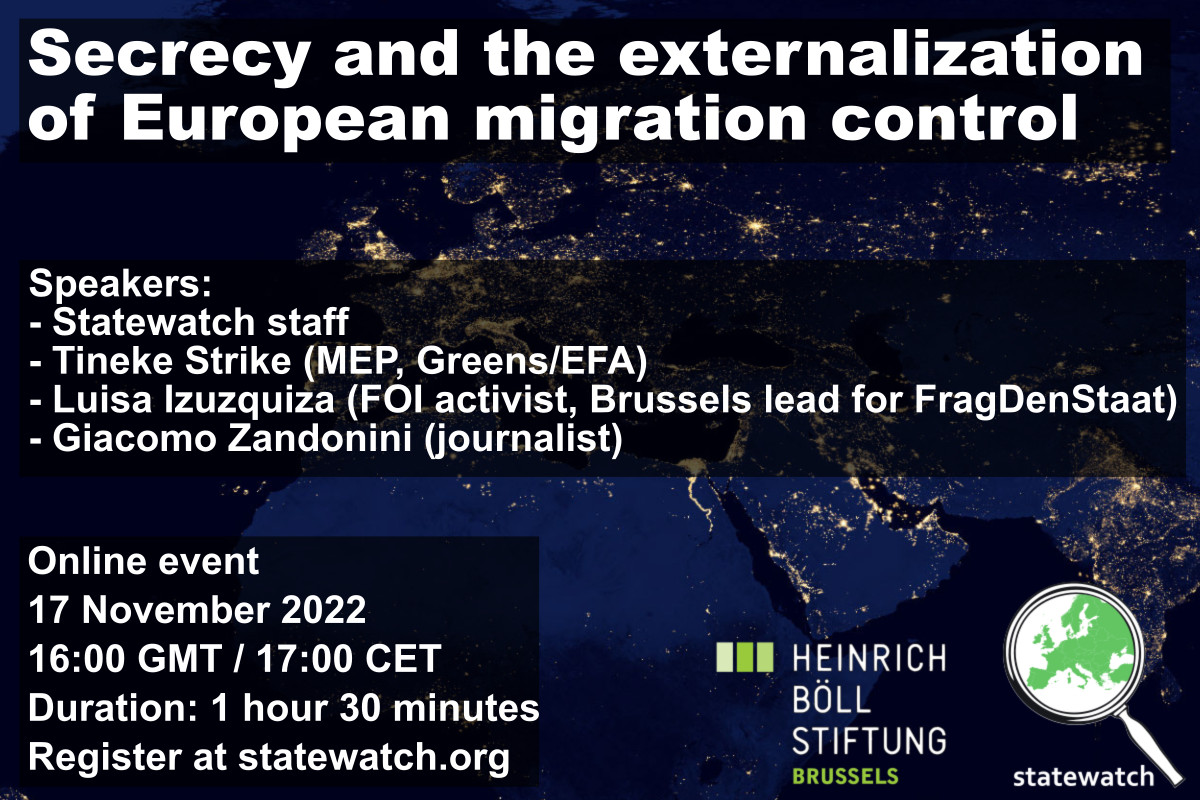
Secrecy and the externalisation of EU migration control
Since the EU Pact on Migration and Asylum was unveiled in September 2020, significant public and policy attention has been paid to the raft of new and recycled legal measures proposed. However, the Pact also includes a range of activities that do not undergo the same institutional to-and-fro as passing new laws.

AI at the borders: Negotiations, regulations and fundamental rights
The Commission’s proposed AI Act aims to address the risks of certain uses of artificial intelligence and to establish a legal framework for the trustworthy deployment of AI. In the context of migration and border control, the Act raises significant concerns, which must be addressed in ongoing negotiations within Parliament, and in future campaigning and advocacy. Join us on Monday 16 May to discuss how AI is already used in the migration control context, and some of the key amendments that must be tabled to adequately protect the rights of people on the move.
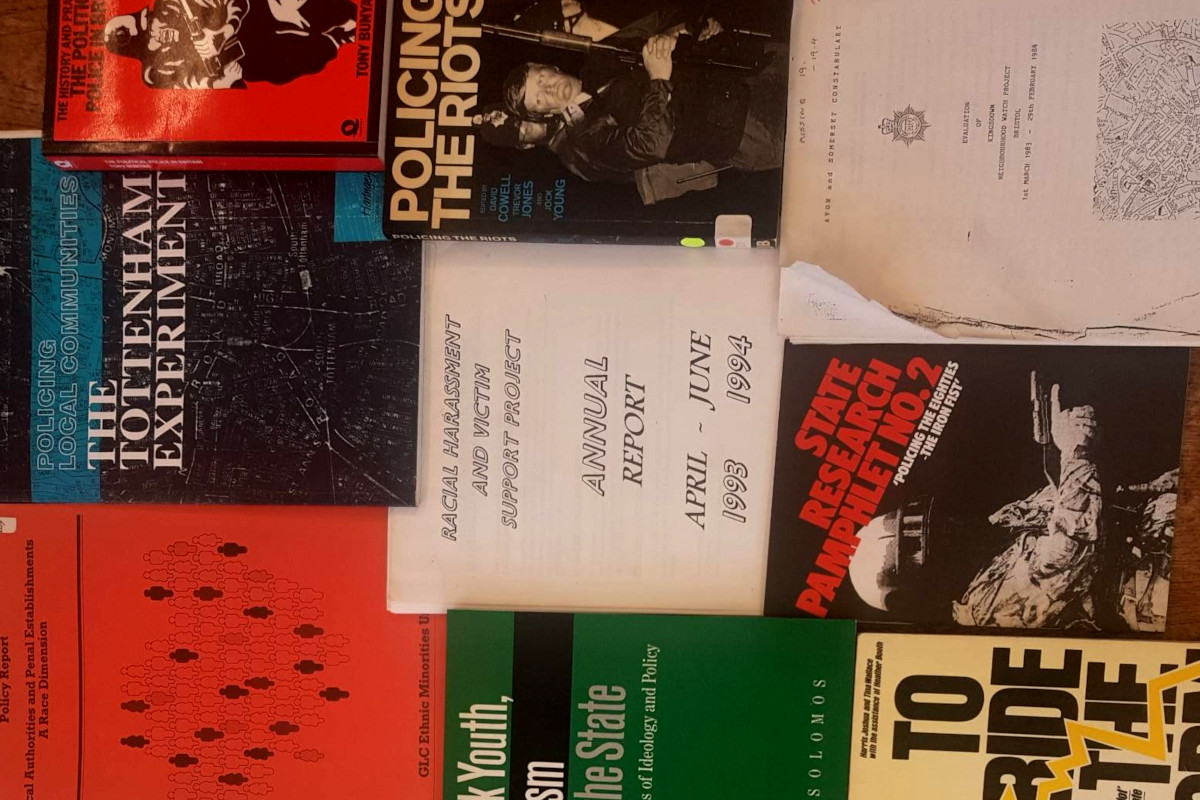
Monitoring the state and learning from history: policing and racism in the Statewatch Library & Archive
We invite you to join us in exploring the connections, similarities and differences between past and present events and struggles through an examination of materials from the Statewatch Library & Archive, a collection of over 800 books, 2,500 items of ‘grey literature’ and a host of other documents and ephemera concerning civil liberties and the state.
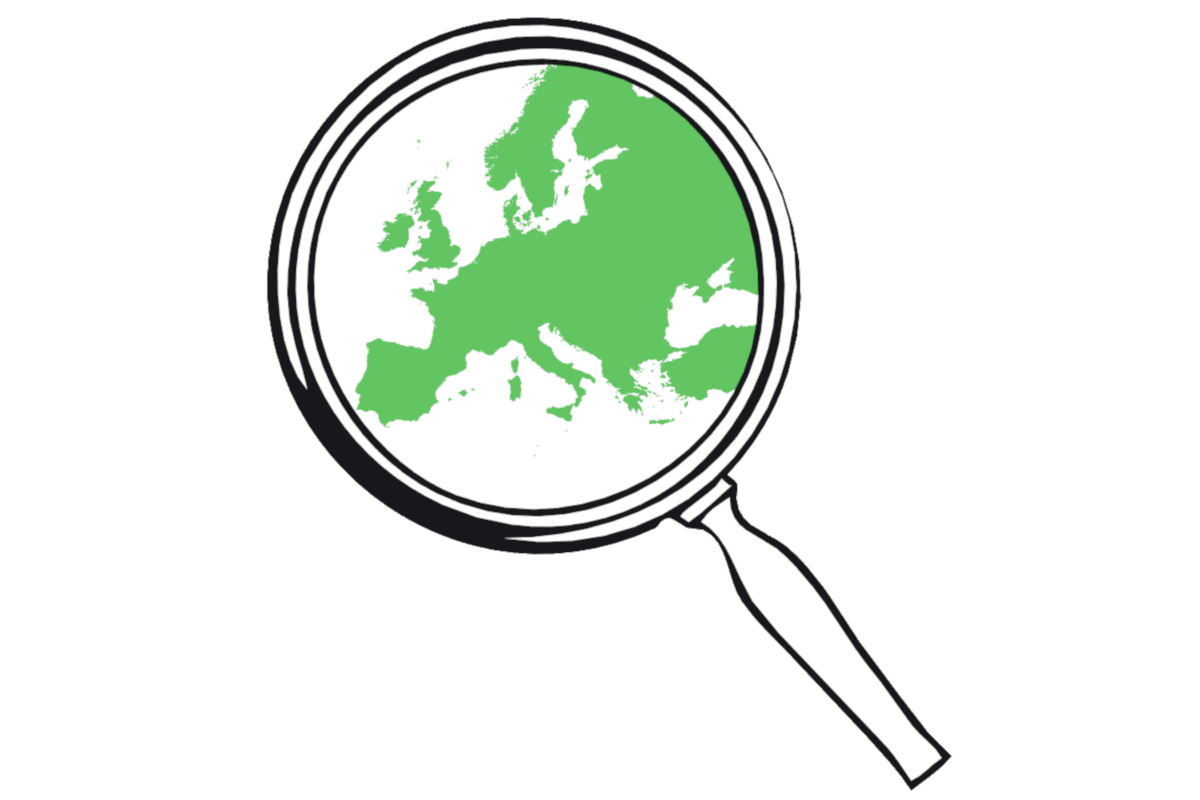
Secrecy in the European Union: how to exercise your right to information
This online event is held with the School for Policy Studies, University of Bristol and is supported by the Economic and Social Research Council's as part of the Festival of Social Sciences . We will look at how governments have sought to maintain secrecy in the EU, and teach you how you can exercise your right to access information.
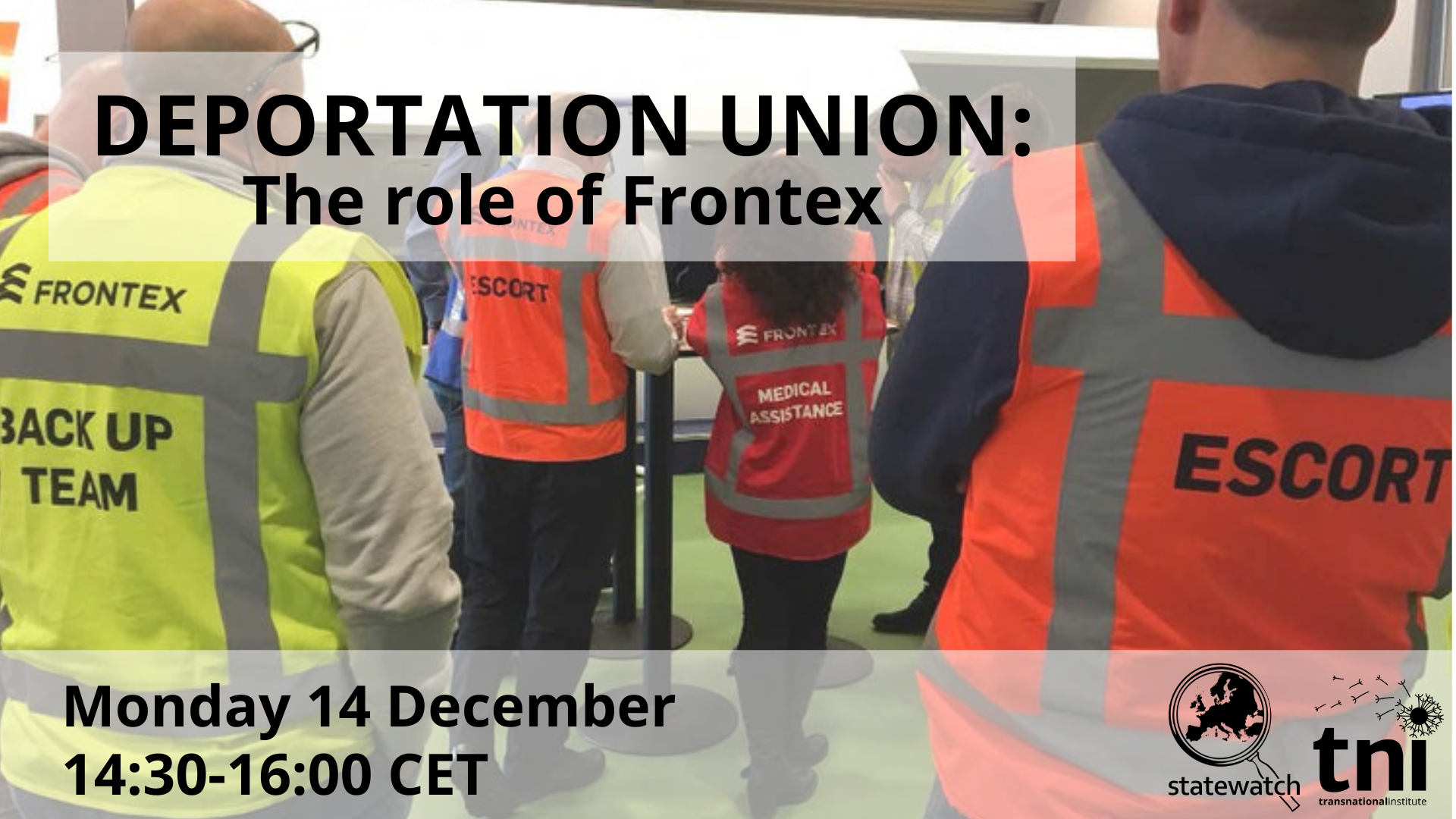
Deportation Union: the role of Frontex
Join Statewatch and the Transnational Institute (TNI) on Monday 14 December for the third and final webinar in the series covering Statewatch’s report ‘Deportation Union: Rights, accountability and the EU's push to increase forced removals’.
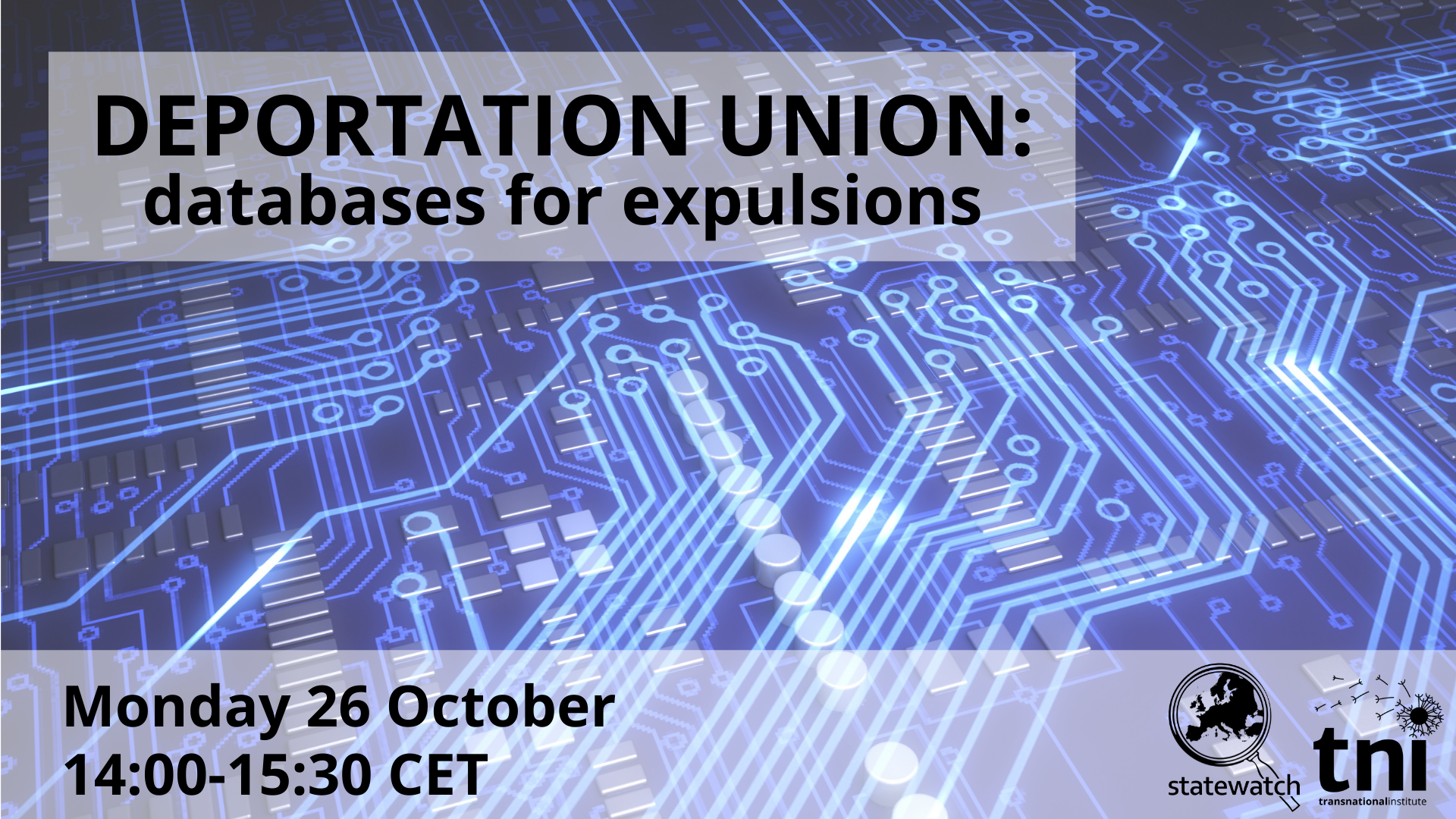
Deportation Union: databases for expulsions
The second in our series of webinars exploring the report 'Deportation Union: Rights, accountability and the EU's push to increased forced removals'.
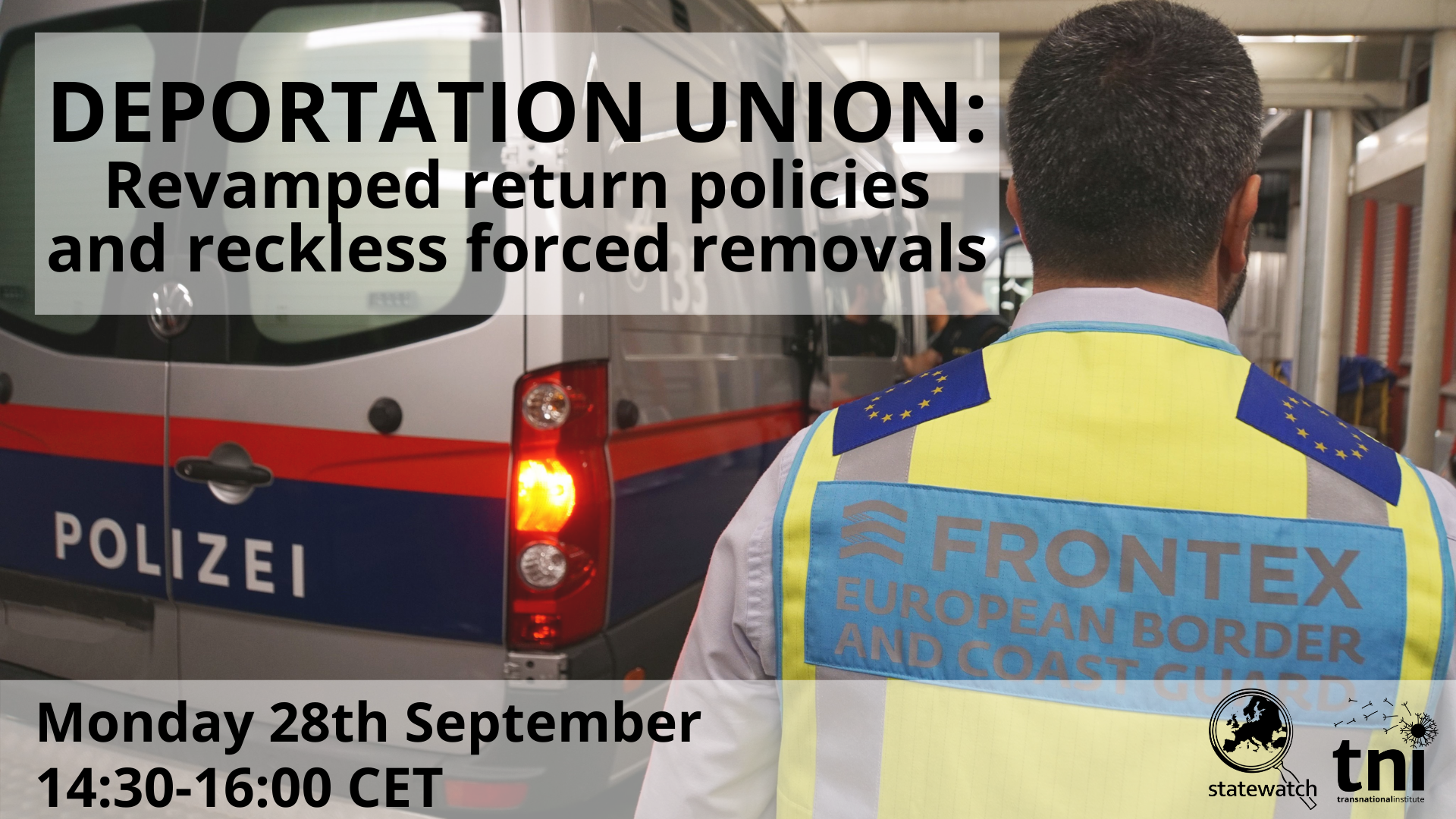
Deportation Union: revamped return policies and reckless forced removals
On 28 September Statewatch and TNI hosted the first webinar of a three-part series accompanying the publication of the report 'Deportation Union: Rights, accountability and the EU's push to increased forced removals'.

Report launch: Automated suspicion: The EU’s new travel surveillance initiatives
Normal people are increasingly being treated as suspects when they travel to the EU. What are the risks for civil liberties?
Northern Ireland: The legacy of collusion
Thursday 30 January 2020: 18.00 - 20.00 at: Statewatch, c/o: MAYDAY ROOMS, 88 Fleet St, London EC4Y
Launch of the Statewatch Library & Archive
The Statewatch Library & Archive is being launched on Thursday 22 November 2018 at May Day Rooms in London: 18.00 - 20.00.
Spotted an error? If you've spotted a problem with this page, just click once to let us know.
